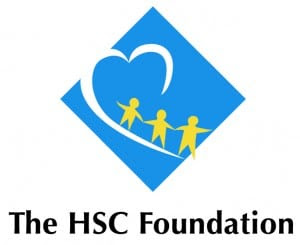



Â
A new study raises serious questions about the increasingly common use of second-generation antidepressant drugs to treat anxiety disorders.
Â
Although the practice is becoming increasingly common, researchers worry that the value of the drugs for anxiety may have been overestimated as a result of publication bias.
Â
Publication bias occurs when only studies that show beneficial effects of the intervention are published.
Â
As reported in JAMA Psychiatry, the new review concludes that studies supporting the value of second-generation antidepressant drugs for the treatment of anxiety have been distorted by publication bias, outcome reporting bias and “spin.â€
Â
Even though they may still play a role in treating these disorders, the effectiveness of the drugs has been overestimated, say the researchers.
Â
In some cases the medications, which are among the most widely prescribed drugs in the world, are not significantly more useful than a placebo.
Â
Read More:
Â
The Centers for Disease Control and Prevention (CDC) has just published its first national study on the various forms of treatment used for attention deficit hyperactivity disorder (ADHD) in children. The study examined the use of medication, behavioral therapy, and dietary supplements — and its results were eye-opening.
Â
Almost 1 in 4 preschoolers were treated with medication alone.
Â
That is an astounding number, when you stop and consider that a preschooler’s brain is still under active development. Prescribing stimulants to such a young child’s brain is a bad idea, given we have no longitudinal, long-term studies demonstrating that these medications won’t be harmful in a child’s development.
Â
Read on to learn more about the study’s key findings.
Â
Read More …
http://psychcentral.com/blog/archives/2015/04/03/too-many-preschoolers-getting-medications-for-adhd/

Here we are again. It’s April, and in the coming weeks, Autistic people and our allies will face a long list of non-autistic experts and spokespeople talking about us, without us. For many of us, April is a time when the public is “aware” of autism but chooses to ignore Autistic people.
Â
We’re often asked by non-autistic friends and allies what they can do to support the Autistic community in the month of April and beyond. We know that many of you are looking for ways to be a part of the solution. That’s why this month, we’d like to ask you to join us in taking the pledge for Autistic inclusion. It’s a simple message:
Â
“I pledge to only attend, speak at or otherwise participate in autism panels, conferences and events that meaningfully involve Autistic people. I choose not to give my business or my time to settings that fail to include Autistic voices in conversations about autism.”
Â
Conversations on autism should include Autistic people – it’s as simple as that. That should not be a difficult standard to meet, but for too many conferences, panels and events in the autism community, the most important stakeholders – Autistic people ourselves – are excluded.
Â
We think it’s time to change that – and your voice will help make that possible. Will you join us in signing the pledge and taking a stand to support Autistic voices? What you do today matters in building a truly inclusive community for all of us. We hope you’ll join us in standing up for including autistic people in our national conversation on autism. Once you do, tell your friends on social media using the hashtag #AcceptanceIs and we’ll signal boost you to help get the message out.
Â
Thank you for your support in helping turn April into Autism Acceptance Month. Autistic people deserve more than just awareness – we deserve respect, inclusion and acceptance. You can help make that happen. As always, Nothing About Us, Without Us!
Â
Sincerely,
Ari Ne’eman
President
Autistic Self Advocacy Network
Â
Â
Wednesday, February 25, 2015
Kimberly Greenberg. Photo courtesy LAPD.
Â
Posted by on in Crime
Â
Police Tuesday continued their search for a teenager missing for the past week from her home in Mar Vista.
Â
Kimberly Greenberg, 15, has not been seen since last Tuesday, when she went missing around 8 p.m. from her home in the 11200 block of Westminster Avenue.
Â
Family members are concerned because she takes medication for autism and has not made contact with them since she disappeared.
Â
Los Angeles Police Department Lt. Daniel Gonzales said officers would continue to search the area Tuesday but were hoping Kimberly would contact her family of her own accord.
Â
“We’re hoping someone will call in with some information, or she will check in with her mom,†Gonzales said.
Â
The teen is Hispanic, with long brown hair, brown eyes and a light complexion. She is 4 feet 10 inches and weighs about 110 pounds. She was wearing a red sweater, jeans and Ugg shoes when last seen.
Â
Anyone with information about her whereabouts was asked to call the Los Angeles Police Department’s Pacific Division Watch Commander at (310) 482-6371.
Â
-City News Service
Â
Source:
http://mynewsla.com/crime/2015/03/31/cops-still-searching-for-missing-autistic-mar-vista-teen/
|
|
| This Sunday, March 1, is the 2015 Day of Mourning – a day for disability communities, organizations, and support groups around the country will gather and cherish the memories of those who we have lost to senselessness violence at the hands of those closest to us and to continue to strive to seek justice for these crimes so as to prevent them from ever occurring again. |
| In the past five years, over seventy people with disabilities have been murdered by their parents or caregivers.
 These acts are horrific enough on their own. But they exist in the context of a larger pattern. A parent kills their disabled child. The media portrays these murders as justifiable and inevitable due to the “burden†of having a disabled person in the family. If the parent stands trial, they are given sympathy and comparatively lighter sentences, if they are sentenced at all. The victim is disregarded, blamed for their own murder at the hands of the person they should have been able to trust the most, and ultimately forgotten. And then the cycle repeats.  ASAN asks you to join us on March 1 in this year’s vigils to bring awareness to the ongoing tragedy, and to demand equal rights, protection and justice for all citizens. |
ÂCurrent vigil sites and contact information can be found on the ASAN website. Tempe, AZ |
| Berkeley, CA Facebook event Brent White, brent@alacosta-acat.com The Disability Rights Education & Defense Fund (DREDF), co-sponsor  Los Angeles, CA  Sacramento, CA  Washington, DC  Atlanta/Decatur, GA  Chicago, IL  Cambridge, MA  Ypsilanti/Ann Arbor, MI  Twin Cities, MN  Edison, NJ  Albuquerque, NM  Albany, NY Yosef Treitman, treitmaniac@gmail.com  New York City, NY (Manhattan)  New City, NY  Rochester, NY (March 2nd)  Portland, OR  Philadelphia, PA  Pittsburgh, PA  Houston, TX  Seattle, WA  Beloit, WI  CANADA  New Westminster, BC  Halifax, Nova Scotia  HUNGARY  Budapest  UNITED KINGDOM  Preston, Lancashire
 |
Feb
19
Dear Readers,
Â
Stephen Fry notified me a week ago of the following petition. Please join us in signing, if you will:
Alan Turing was the greatest computer scientist ever born in Britain. In one stroke he defined the criteria by which the Nazis’ “impossible†Enigma code could be broken and laid the foundations of modern computing. He was a hero.
He was also gay. He was prosecuted for it, punished with chemical castration and took his own life, aged 41. In 2013 the British Government rightly pardoned Turing. But Turing was not the only man convicted for being gay under the laws of “gross indecencyâ€. These were pernicious, cruel laws that fortunately don’t exist now but whose shadow still looms over too many.
More than 49,000 men were convicted under these and similar laws. Their lives were destroyed. They suffered humiliation, violence and total estrangement from their families which in some cases also led to suicide.
That is why I’m lending my support to calls for Her Majesty’s Government to pardon all the men, alive or deceased, who, like Alan Turing, were convicted under ‘anti-gay’ laws.
Please join me by signing this petition.
The Imitation Game film has brought Alan Turing’s story to cinemas around the globe. But what about all of the men whose stories will never be heard? They also deserve their names to be cleared.
The UK’s homophobic laws made the lives of generations of gay and bisexual men intolerable. It’s time we acknowledge this mark on our history and correct it. Take a moment to sign the petition here.
Thank you,
Stephen Fry
|
 UPDATE: Nick Clegg MP has responded:  Alan Turing and the thousands of other men should never have been prosecuted. It is utterly wrong that so many people were convicted simply for being who they are.  The Liberal Democrats and I will work to make sure those with convictions for consensual homosexual activity between adults are pardoned. It should never have been a crime in the first place.  Nick |
|
|
|
ACTION ALERT ESEA Reauthorization Bill Moving Fast YOUR ADVOCACY NEEDED! Â SUMMARY: Three parts of the bill threaten quality education and the future of students with disabilities: 1)Â Â Â Â Allowing an unlimited number of students with disabilities to be diverted from pursuing a high school diploma;
To keep protections in place for children and youth with disabilities and to keep expectations high and keep open their opportunities in the future, tell your senator:
The reauthorization of ESEA is happening fast – purposely fast so that we don’t have time to oppose! Senator Alexander’s version could be very harmful to the future of children with disabilities. Your senators need to hear from you now about the issues above and that you OPPOSE the bill as it is currently written. HERE’S HOW TO TAKE ACTION: Call your Senators:
Message: “I am calling to ask Senator _________ to oppose Sen. Alexander’s version of the reauthorization of ESEA and to make sure any reauthorization of ESEA includes all students with disabilities in the assessment and accountability systems using the same standards and assessments with accommodations. Students with disabilities can achieve, they can work, they can contribute to society, and they can go on to college and other education programs after high school. Don’t limit them by having low expectations and tracking their future as early as third grade. Limit the ability of schools to lower expectations for children with disabilities by limiting the use of lower standards and alternate assessments. Senator Alexander’s draft bill puts the future of children with disabilities at risk. Please oppose Senator Alexander’s bill and keep the expectations for my child as high as possible.† You can also send a message to your senator at: http://www.senate.gov/general/contact_information/senators_cfm.cfm |
|
|
|
Applications for Autism Campus Inclusion (ACI) 2015 are due this Sunday, February 15, 2015. Get yours in today!  The ACI summer leadership training prepares Autistic students to create systems change on their college campuses. Accepted applicants will travel to Washington, DC and participate in advocacy training from May 30 to June 6, 2015. Participants will acquire valuable skills in community organizing, policy formation, and activism. Travel and lodging are fully covered by ASAN.   Watch the video of our 2013 alumni sharing their experiences  Applicants must identify as Autistic and current college students with at least one year remaining before graduation. The Autistic Self Advocacy Network will cover travel and lodging costs for all ACI students. We specifically encourage students of color, LGBT students, students with intellectual disabilities, AAC users, and students from other or multiply marginalized communities to apply.  To apply, please submit a completed application by February 15, 2015 to Natalia Rivera Morales at NRiveraMorales@autisticadvo cacy.org with the subject line “2015 ACI Applicationâ€.  View and download the application here  If you need assistance or accommodations at any stage, please contact Natalia Rivera Morales at NRiveraMorales@autisticadvo cacy.org.
ACI is made possible with the generous support of the Mitsubishi Electric America Foundation and the HSC Foundation. |










